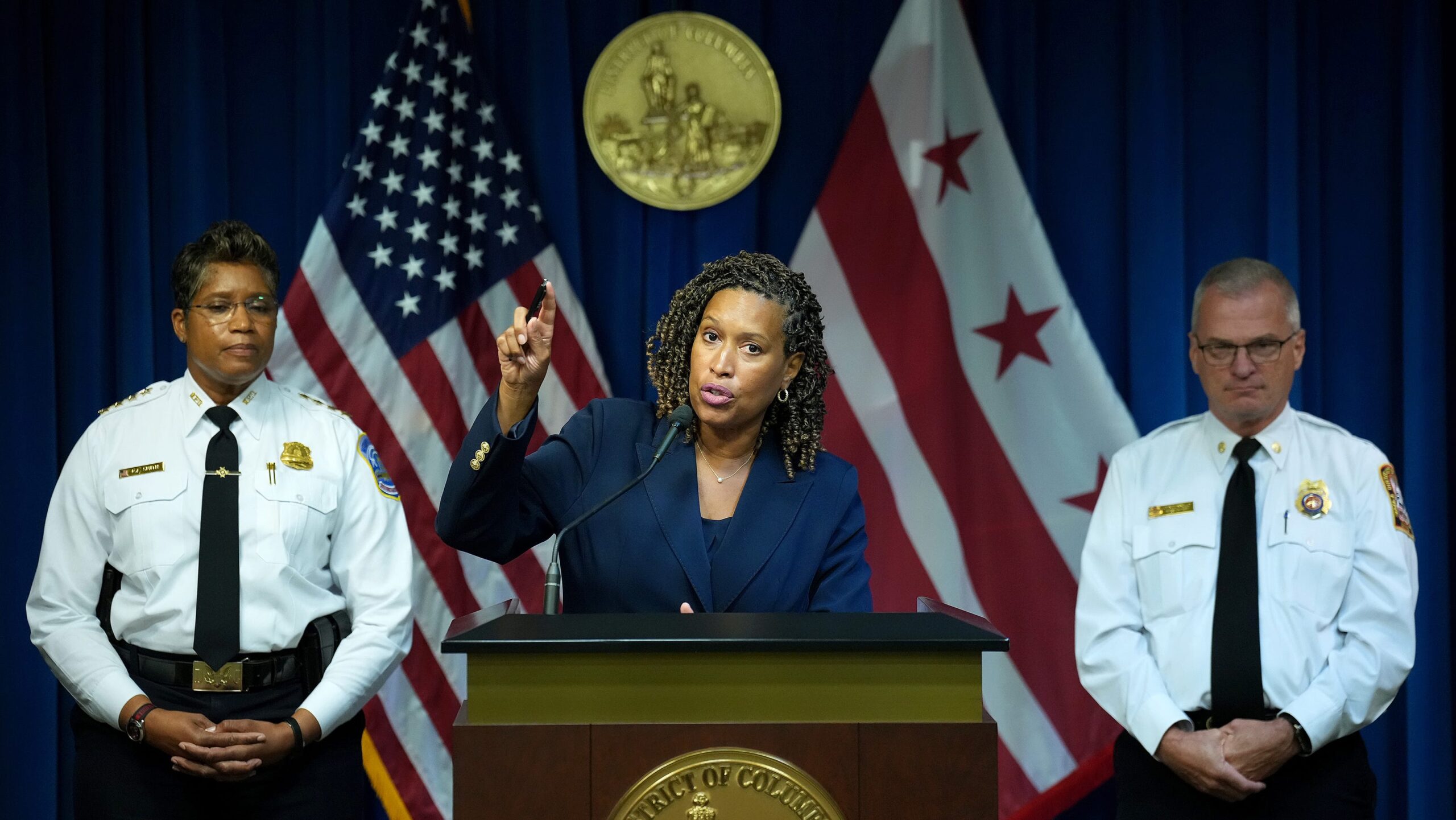Politics
Black Mayors Respond to Trump’s Threats of National Guard Deployments

In a significant political development, Oakland Mayor Barbara Lee and fellow officials are mobilizing in response to President Donald Trump‘s warning that he might send the National Guard to cities like Oakland, Los Angeles, and Chicago. This reaction goes beyond mere rhetoric, as mayors from predominantly Black cities express deep concern over what they perceive as a targeted approach from the Trump administration. They argue that the president’s actions and comments serve to undermine their leadership.
Concerns of Targeted Actions Against Black Leaders
Lee, along with other Black mayors and civil rights activists, believes that Trump’s focus on cities governed by Democratic mayors—who are predominantly Black—constitutes a form of profiling. “We just can’t help but feel in some kind of way that we’re being specifically profiled,” stated Van R. Johnson, president of the African American Mayors Association and mayor of Savannah, Georgia. This sentiment reflects a growing anxiety among urban leaders regarding federal intervention in local governance.
In a statement, Yvette Clarke, chairwoman of the Congressional Black Caucus, described Trump’s actions regarding policing in Washington, D.C. as a “blatantly racist and despicable power grab.” She warned that such moves could have implications for democracy across the nation.
In early August, Trump used his presidential powers to take control of policing in Washington, D.C., citing concerns over crime, despite data indicating that crime rates in the district are at a 30-year low. On August 11, he proclaimed, “We’re going to take back our capital,” indicating that similar measures could extend to other cities.
Contrasting Views on Urban Challenges
The White House has defended Trump’s actions, arguing that D.C. is in disarray and requires federal assistance. In an email, Taylor Rogers, a White House assistant press secretary, stated, “If Democrats had any common sense, they would follow President Trump’s lead to crack down on violent crime.” This perspective, however, contrasts sharply with federal crime statistics, which show a nationwide decline in both violent and property crimes.
Critics, including leaders from the National Urban League, accuse Trump of misrepresenting cities led by Black mayors as crime-ridden. “Painting a false picture of the city’s largest Black-majority cities is part of the Trump administration’s ongoing strategy to exploit racial distrust for political gain,” argued Marc Morial, president of the National Urban League.
Many mayors contend that if the Trump administration were genuinely interested in aiding cities, it would not be cutting funding for anti-poverty initiatives and community policing programs. Lee emphasized the need for federal investment, stating, “It doesn’t make any sense what this government is doing if they want to see cities not just survive but thrive.”
Trump has not explicitly mentioned race in his critiques of these cities, but experts note that his history of racially charged comments undermines his claims of impartiality. Jason Williams, a professor of Justice Studies at Montclair State University, explained that urban centers often serve as coded language for communities of color. “He doesn’t necessarily have to say it in order for his base to know what the implications are,” Williams noted.
Lee described Trump’s rhetoric as “fearmongering and diversionary,” adding that the administration’s tactics provoke unrest. She indicated that Oakland has developed a contingency plan should Trump attempt to deploy the National Guard, although she refrained from providing specific details.
Analysts suggest that Trump may exploit isolated incidents to justify interventions in other urban areas, potentially using these as political leverage to rally support among his base. Insha Rahman, vice president of advocacy at the Vera Institute of Justice, remarked, “It’s the red meat that Trump uses to rile up the MAGA base, and it is effective as bait only when it’s left unchecked.”
The history of federal overreach in Black urban communities is a recurring theme, with past actions often undermining local leadership. Williams highlighted that the current political climate echoes previous generations when federal initiatives displaced Black neighborhoods under the guise of urban renewal.
Despite facing these challenges, mayors like Johnson remain committed to addressing crime in their cities. “We’re worried about fighting our federal government as well as fighting crime,” he stated, emphasizing the need for cooperation between local and federal authorities. “When Donald Trump became president, he became president of our cities too.”
As tensions rise, the dialogue between federal and local leaders will be crucial in shaping the future of urban governance and community safety across the United States.
-

 Lifestyle3 months ago
Lifestyle3 months agoLibraries Challenge Rising E-Book Costs Amid Growing Demand
-

 Sports3 months ago
Sports3 months agoTyreek Hill Responds to Tua Tagovailoa’s Comments on Team Dynamics
-

 Sports3 months ago
Sports3 months agoLiverpool Secures Agreement to Sign Young Striker Will Wright
-

 Lifestyle3 months ago
Lifestyle3 months agoSave Your Split Tomatoes: Expert Tips for Gardeners
-

 Lifestyle3 months ago
Lifestyle3 months agoPrincess Beatrice’s Daughter Athena Joins Siblings at London Parade
-

 World3 months ago
World3 months agoWinter Storms Lash New South Wales with Snow, Flood Risks
-

 Science3 months ago
Science3 months agoTrump Administration Moves to Repeal Key Climate Regulation
-

 Science2 months ago
Science2 months agoSan Francisco Hosts Unique Contest to Identify “Performative Males”
-

 Business3 months ago
Business3 months agoSoFi Technologies Shares Slip 2% Following Insider Stock Sale
-

 Science3 months ago
Science3 months agoNew Tool Reveals Link Between Horse Coat Condition and Parasites
-

 Sports3 months ago
Sports3 months agoElon Musk Sculpture Travels From Utah to Yosemite National Park
-

 Science3 months ago
Science3 months agoNew Study Confirms Humans Transported Stonehenge Bluestones









